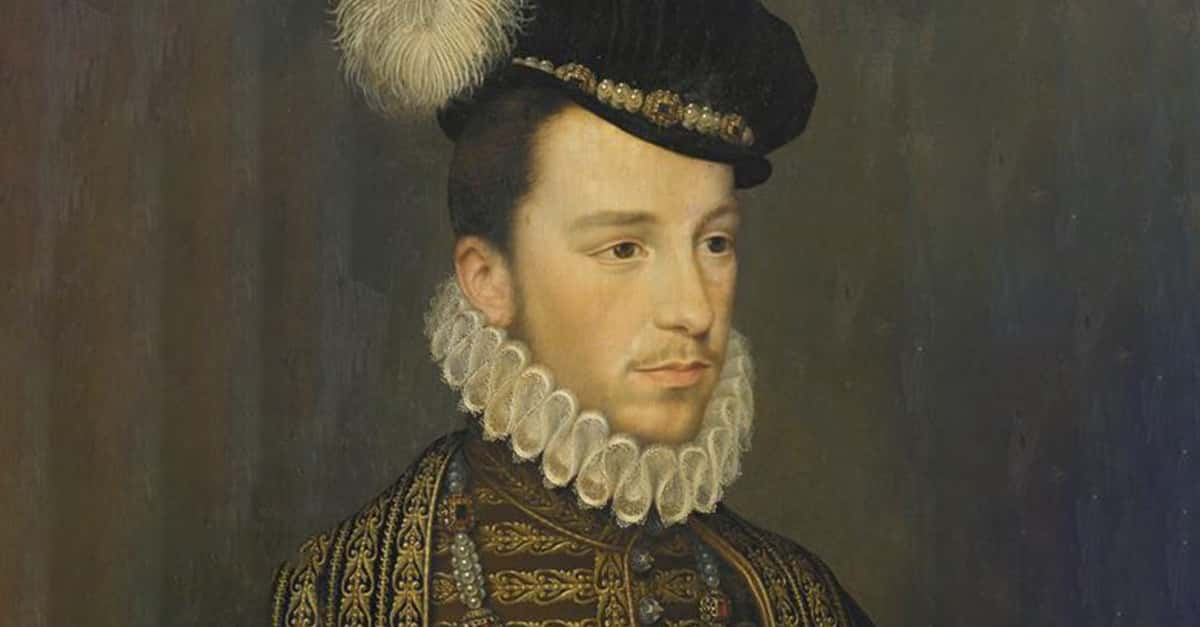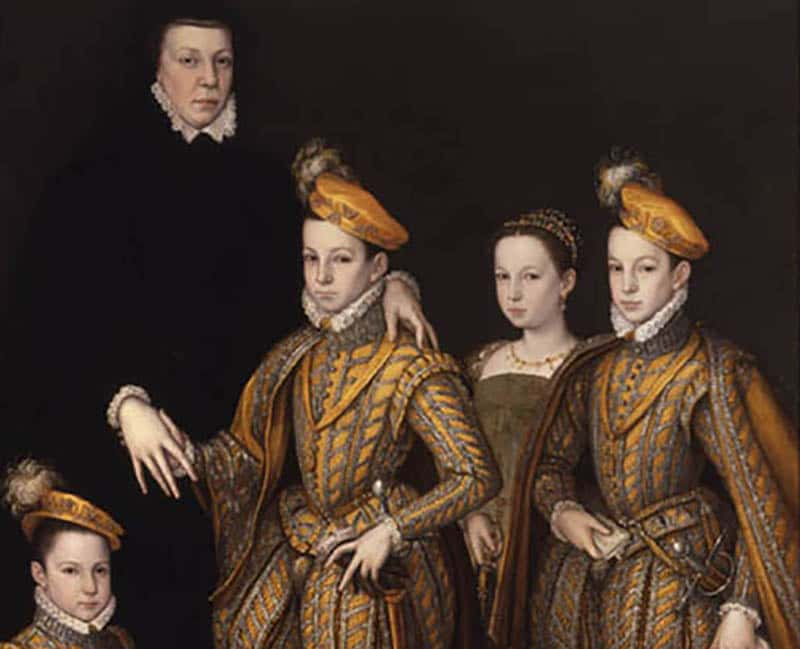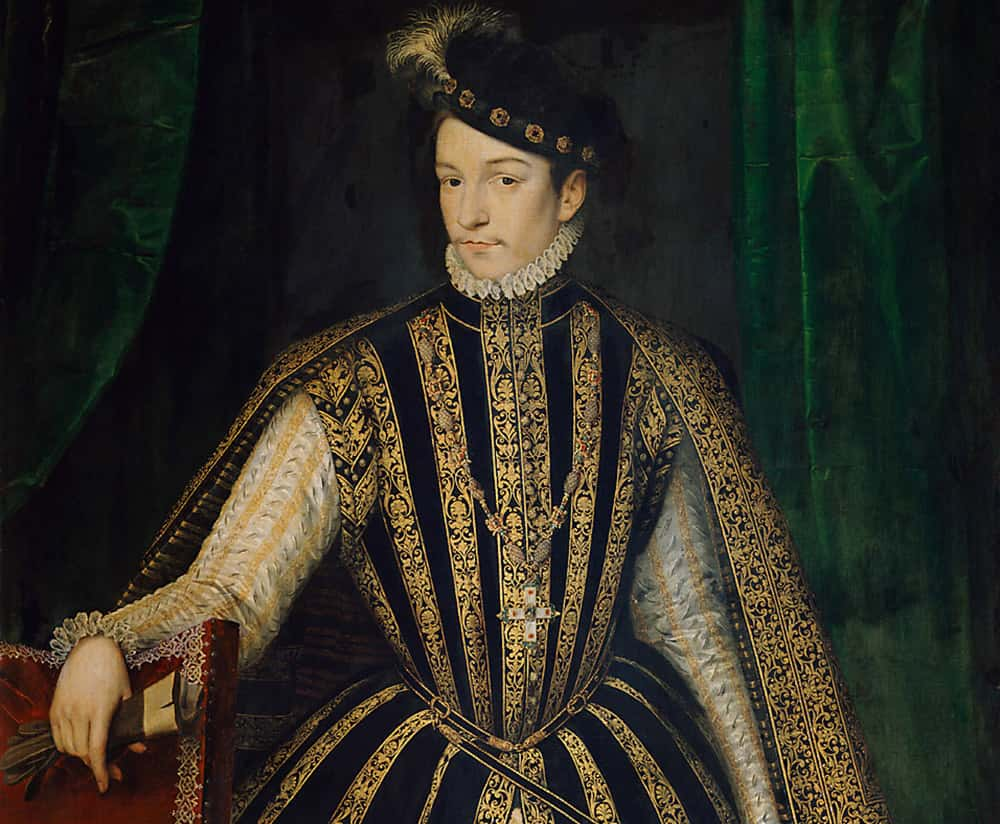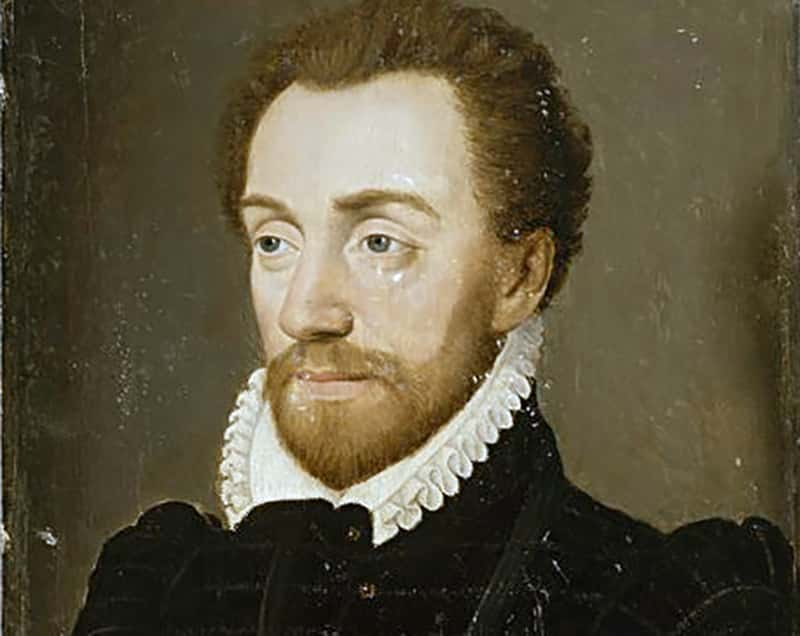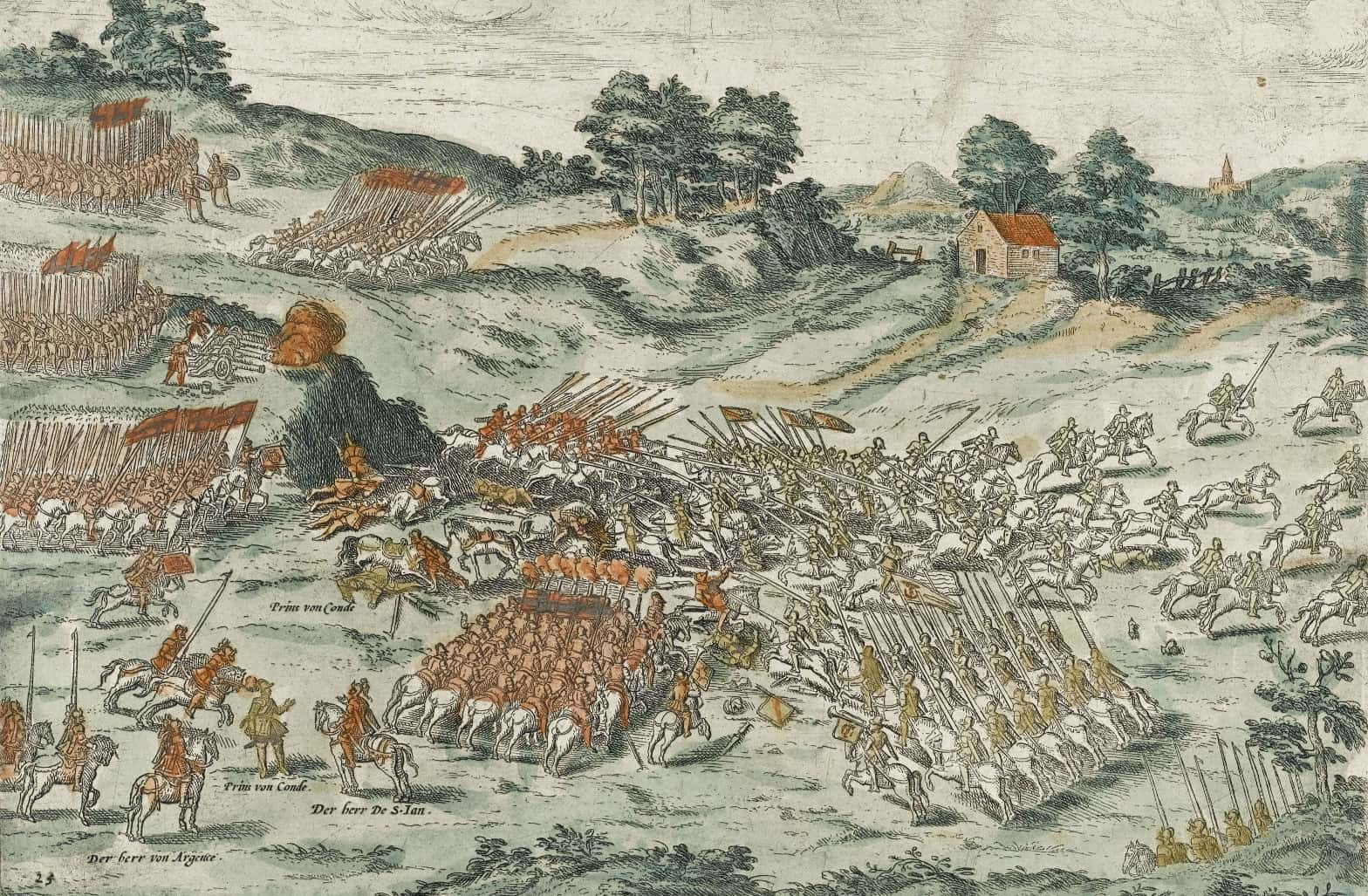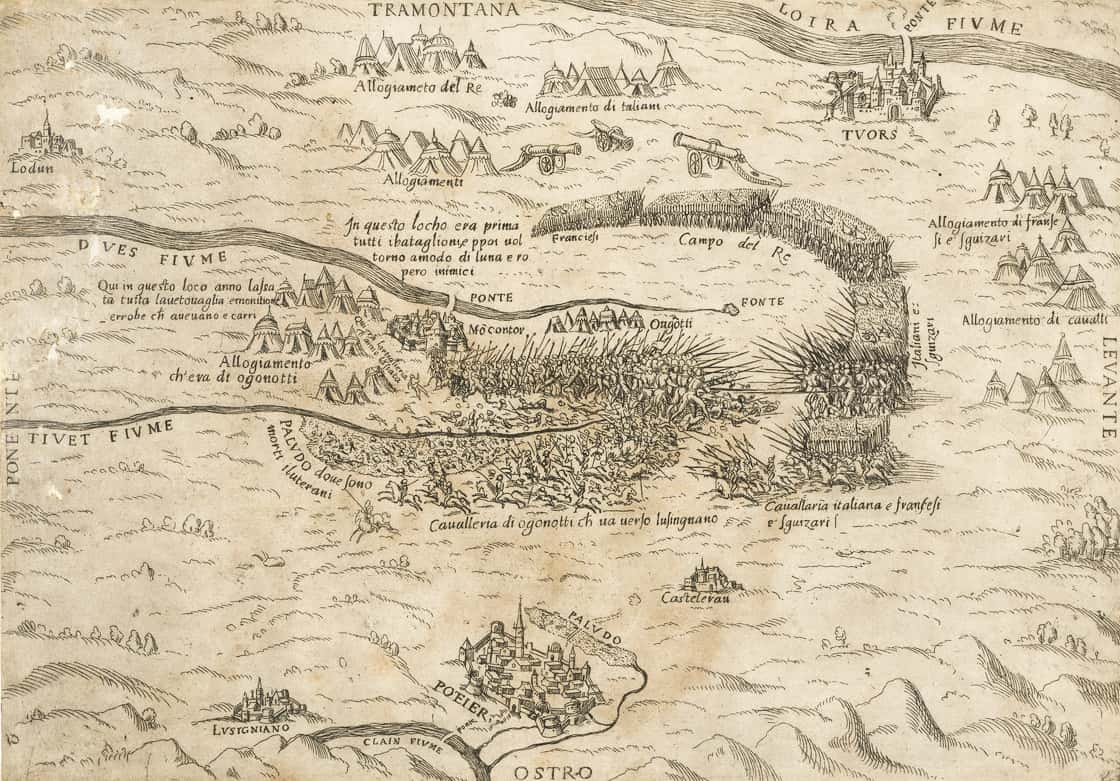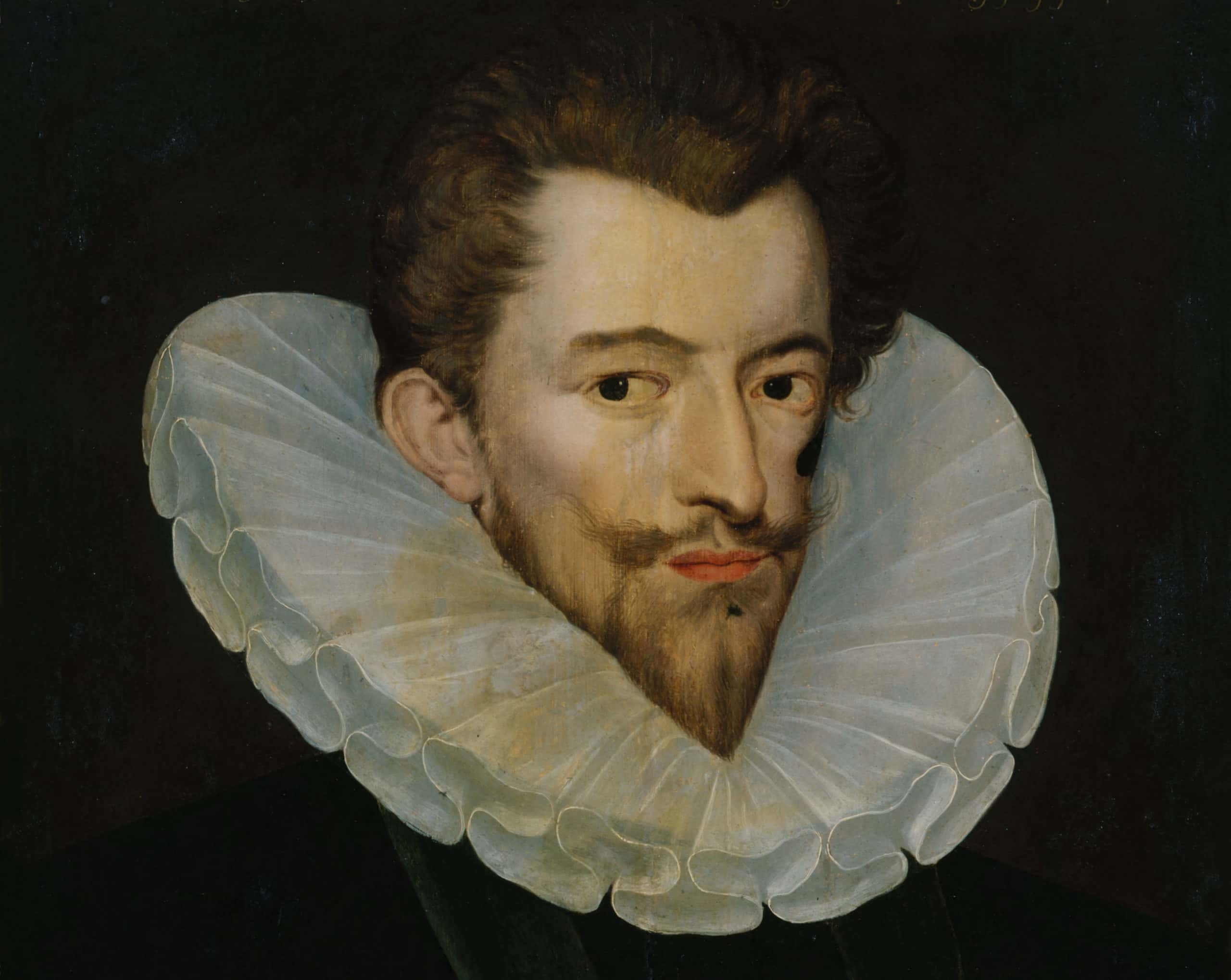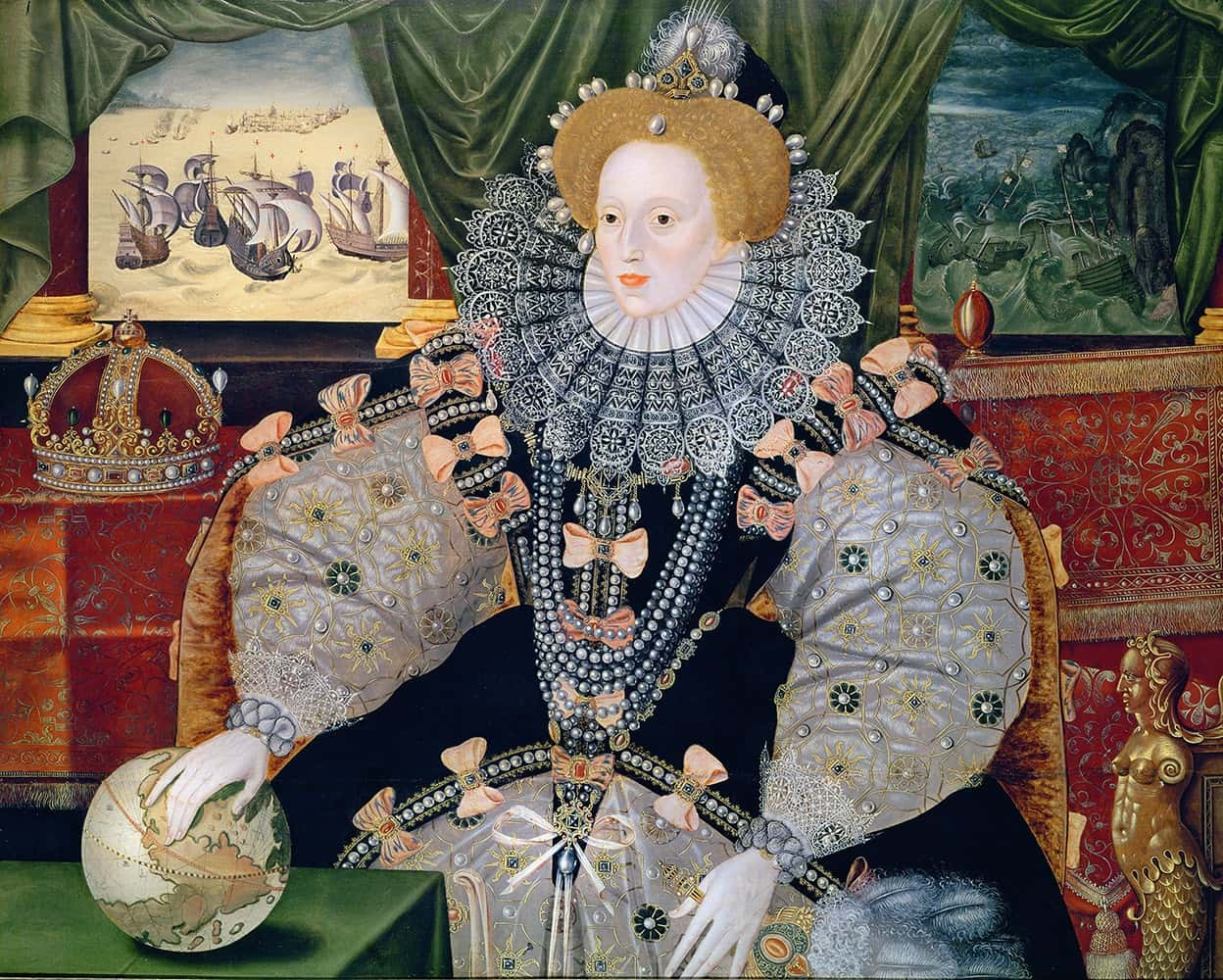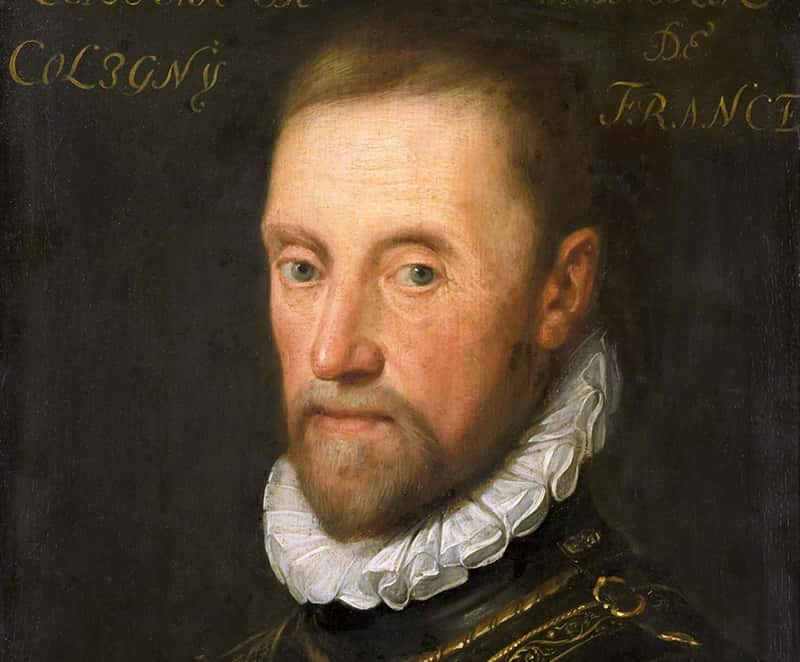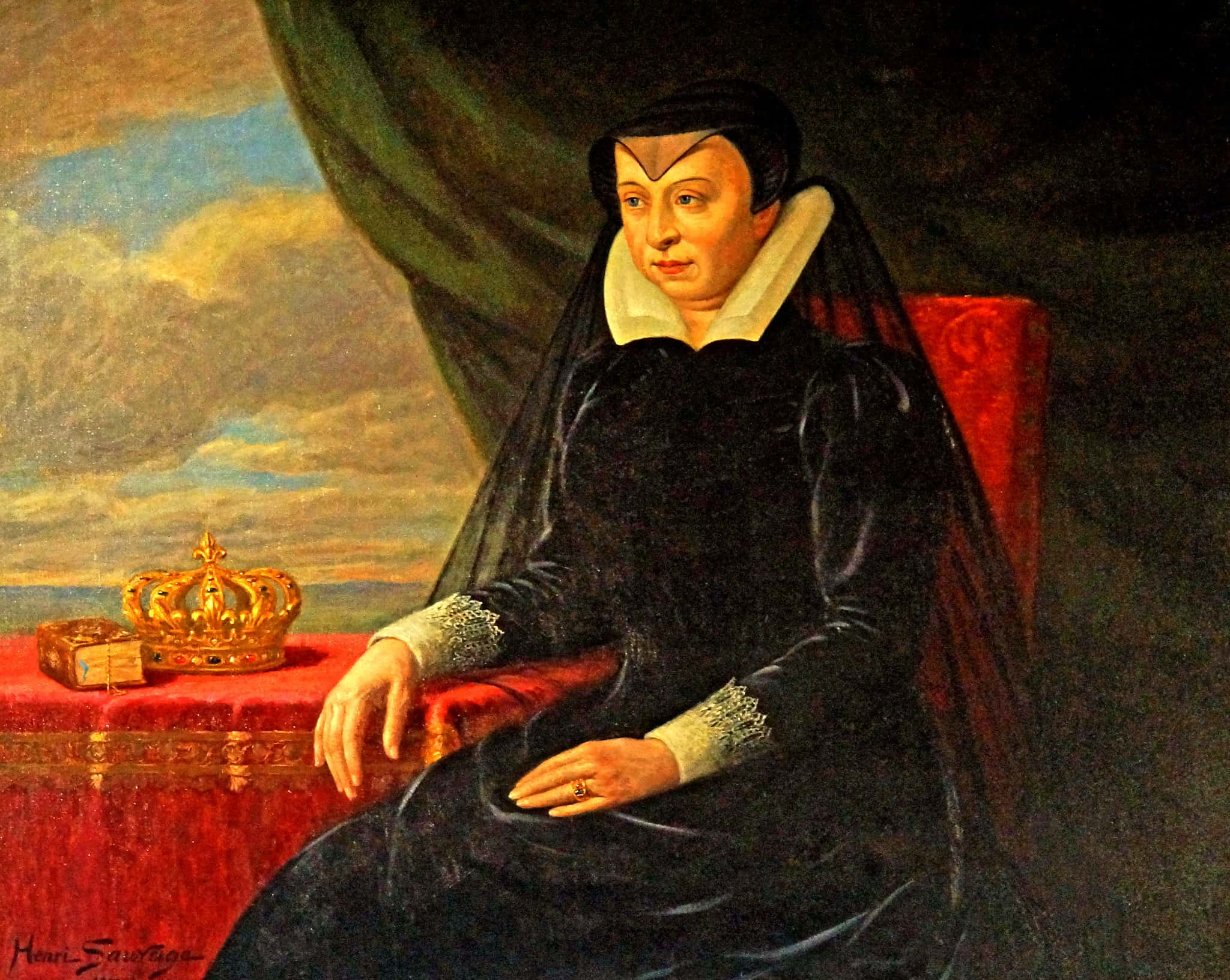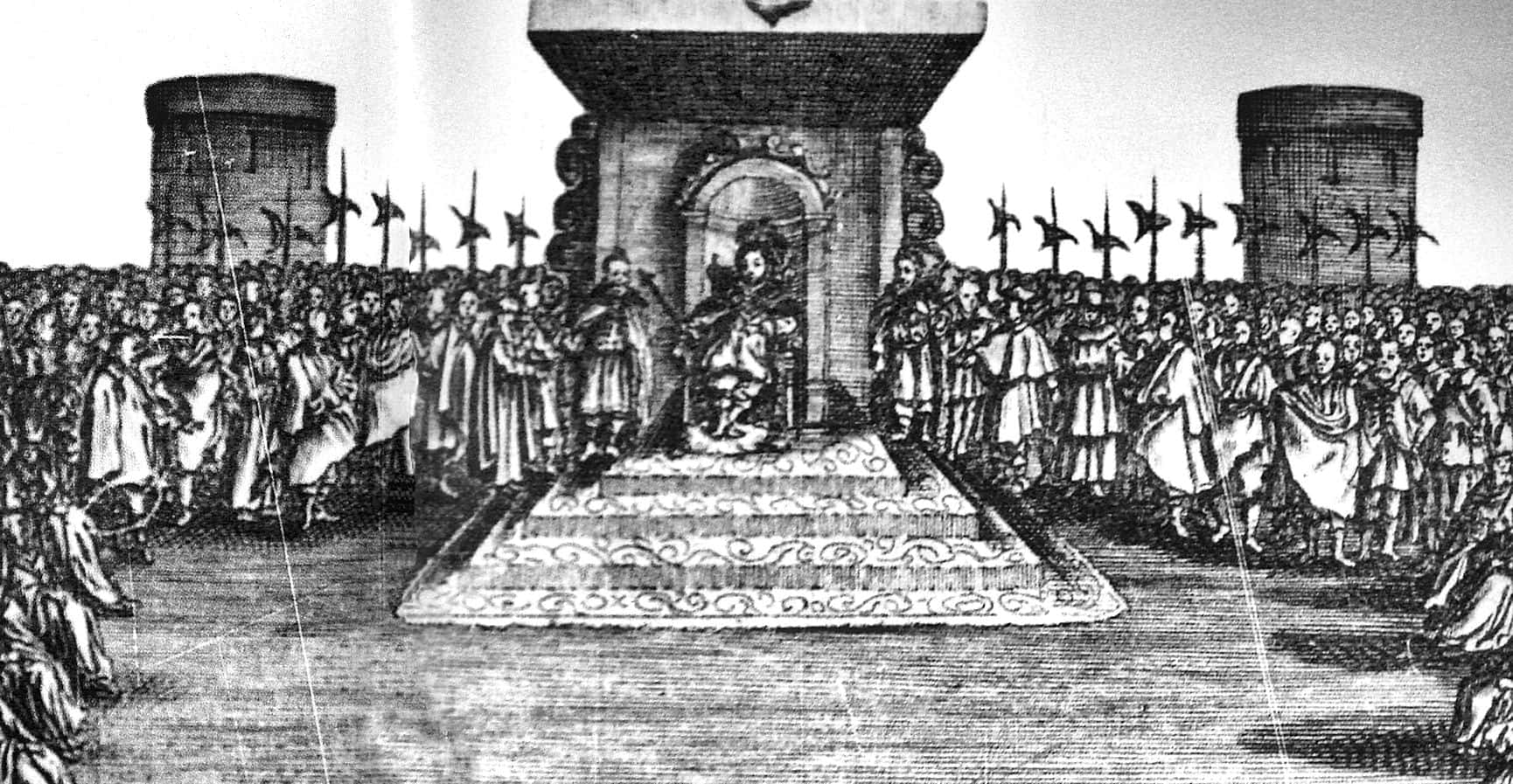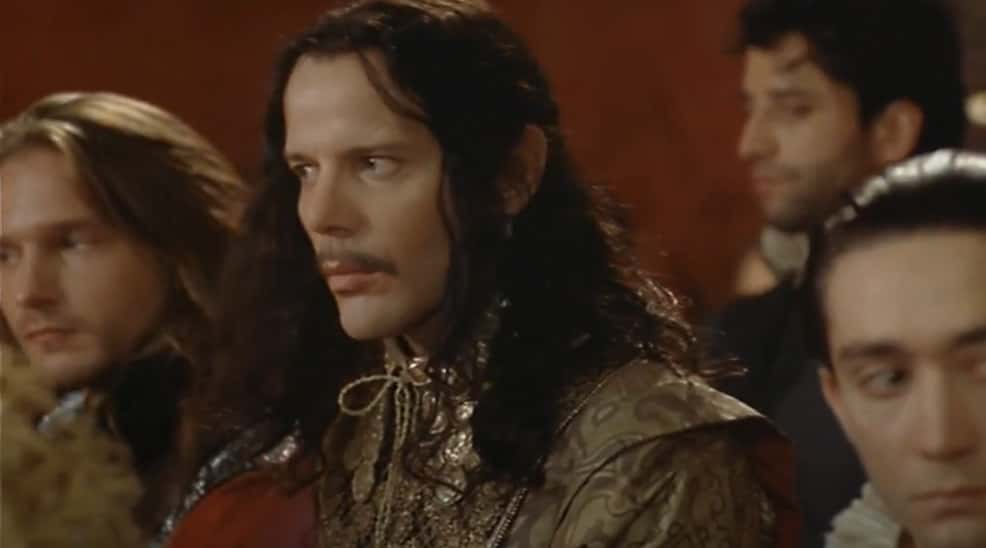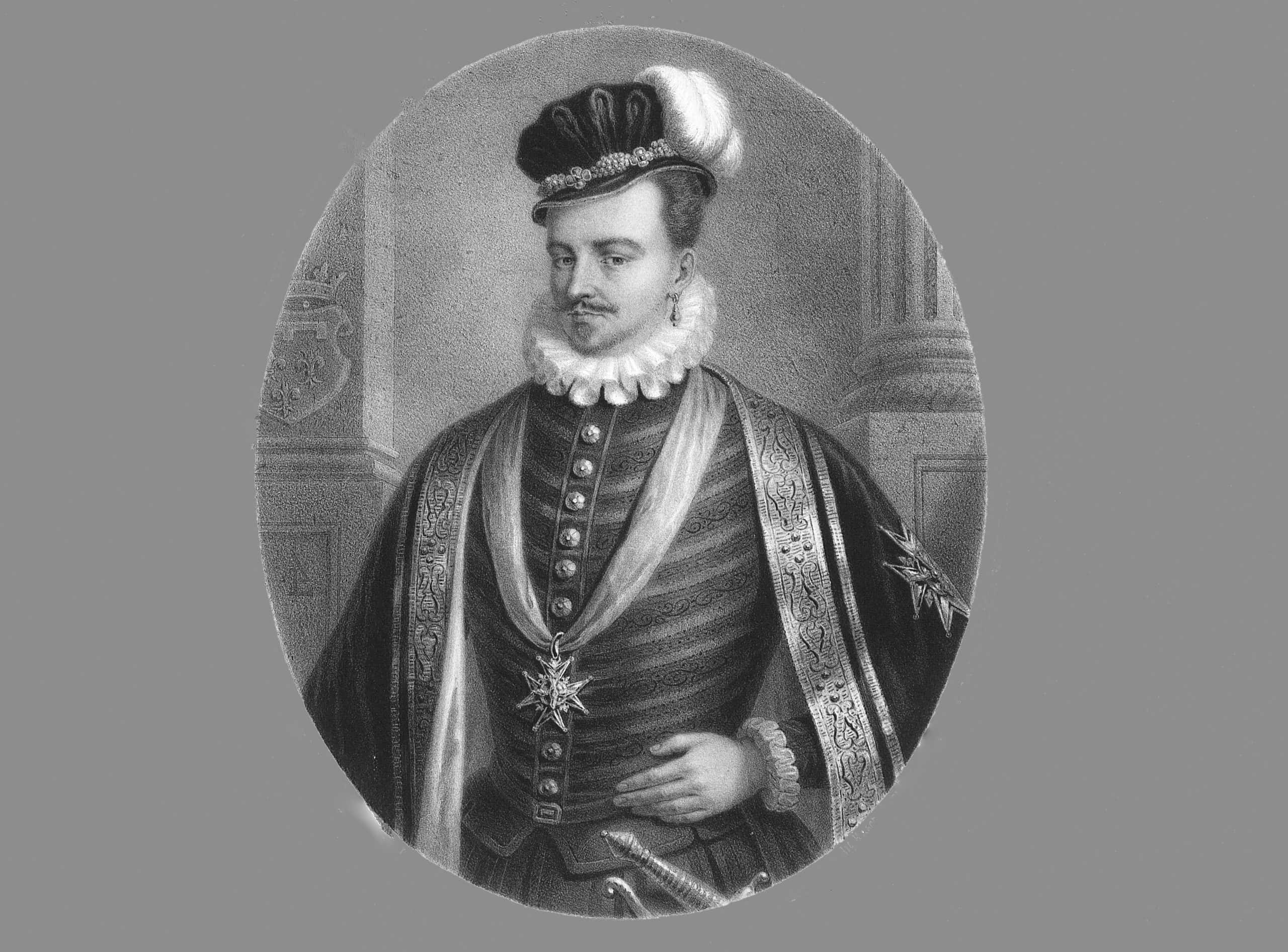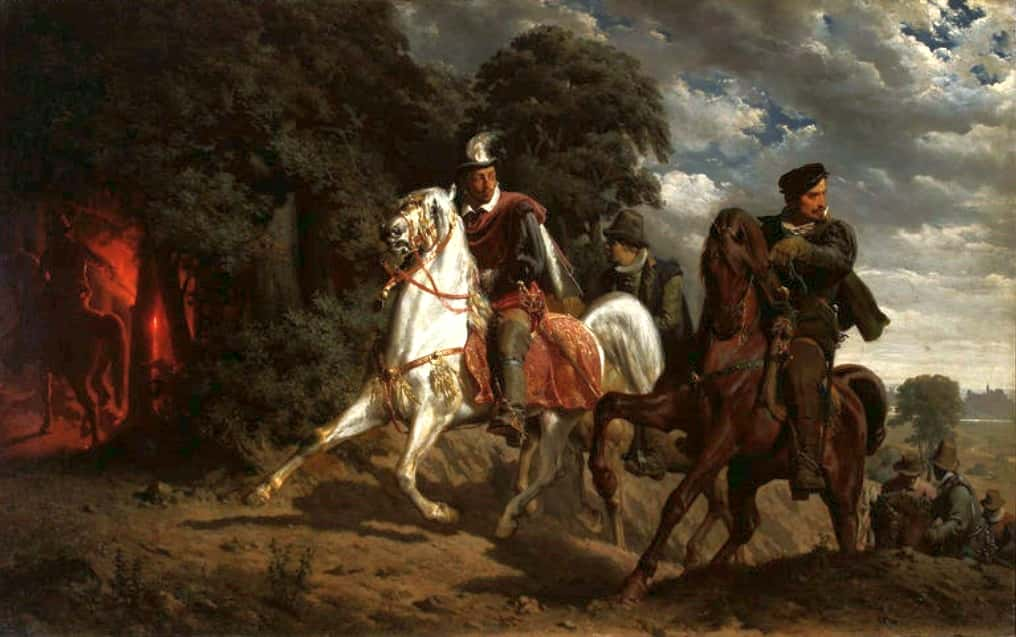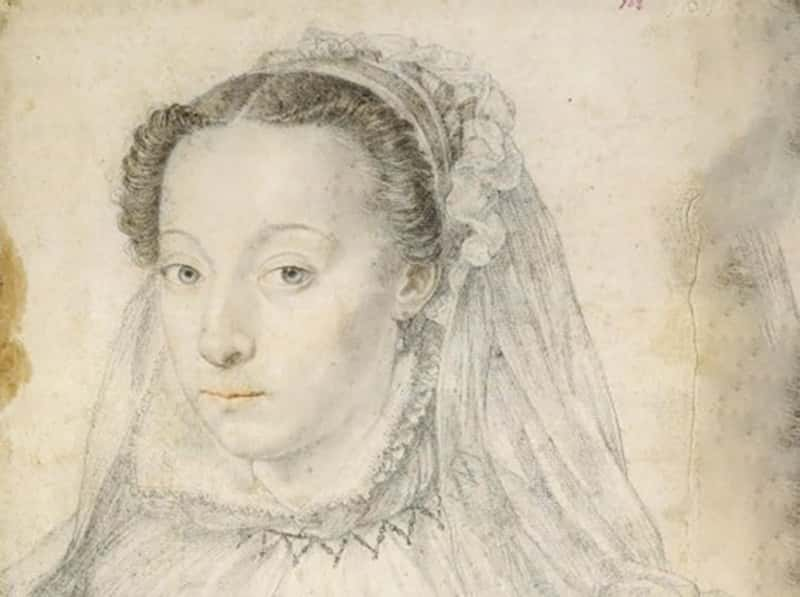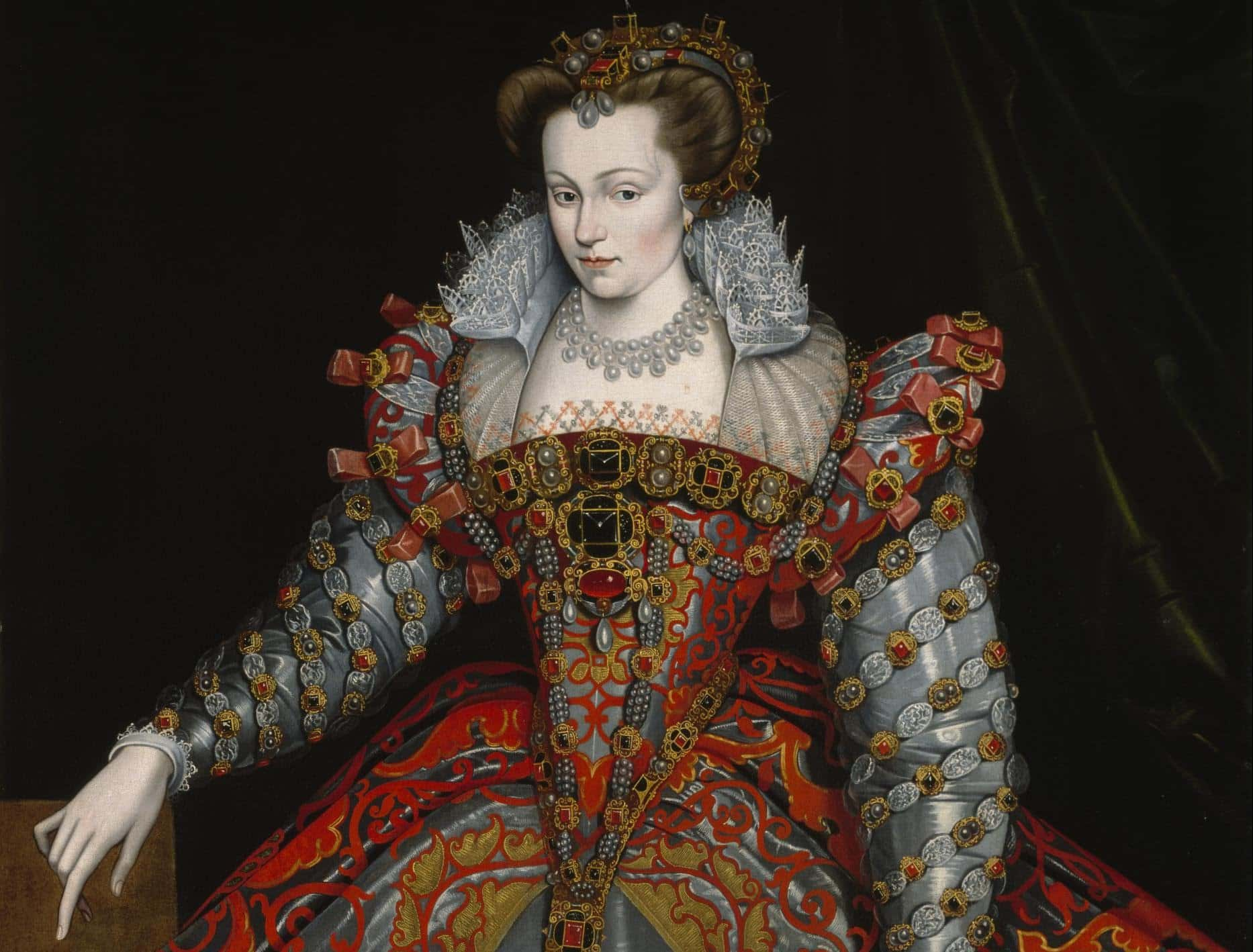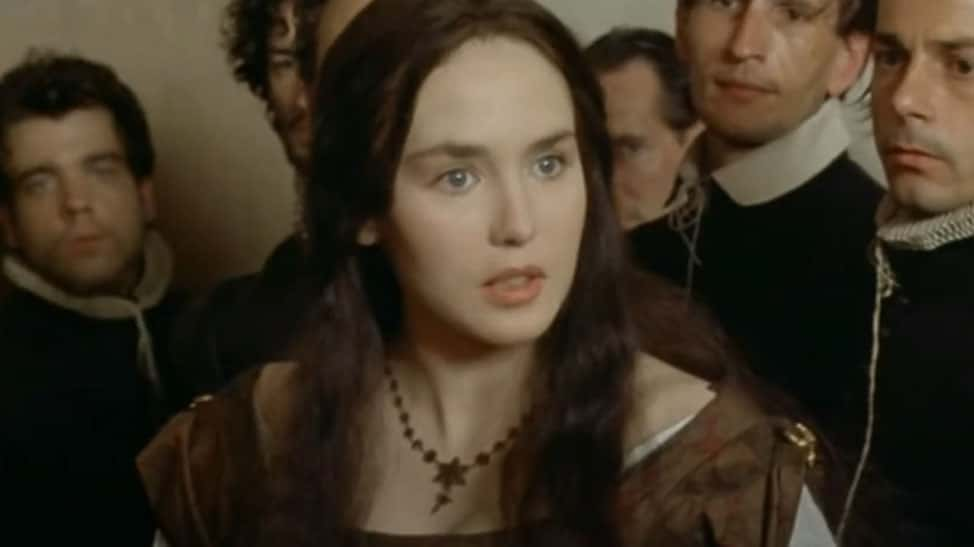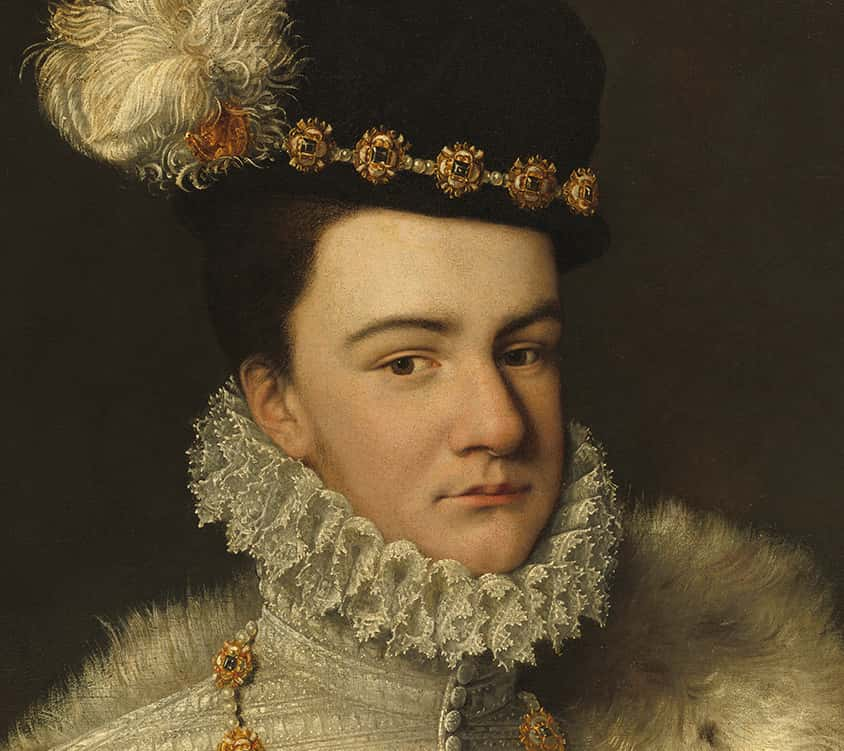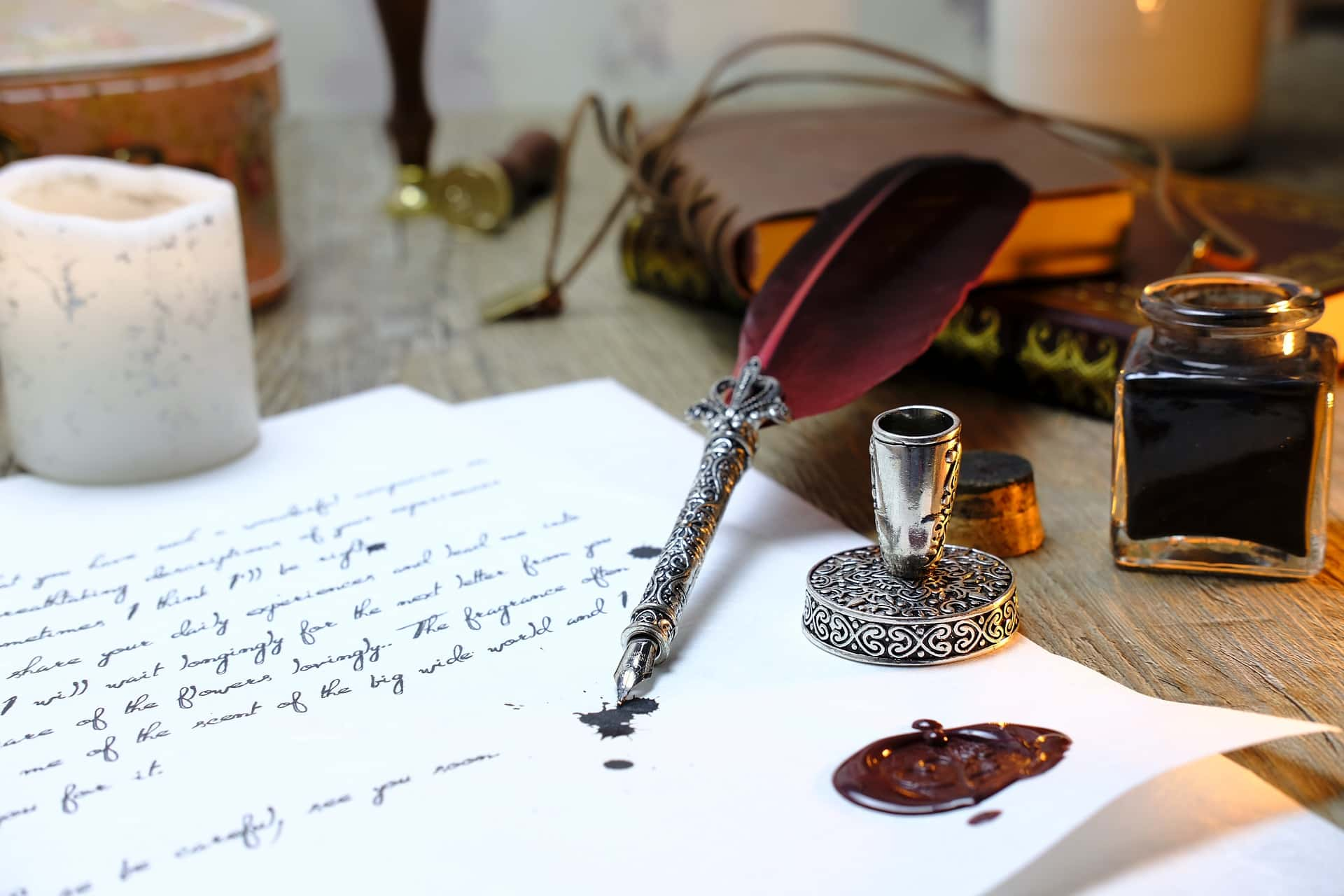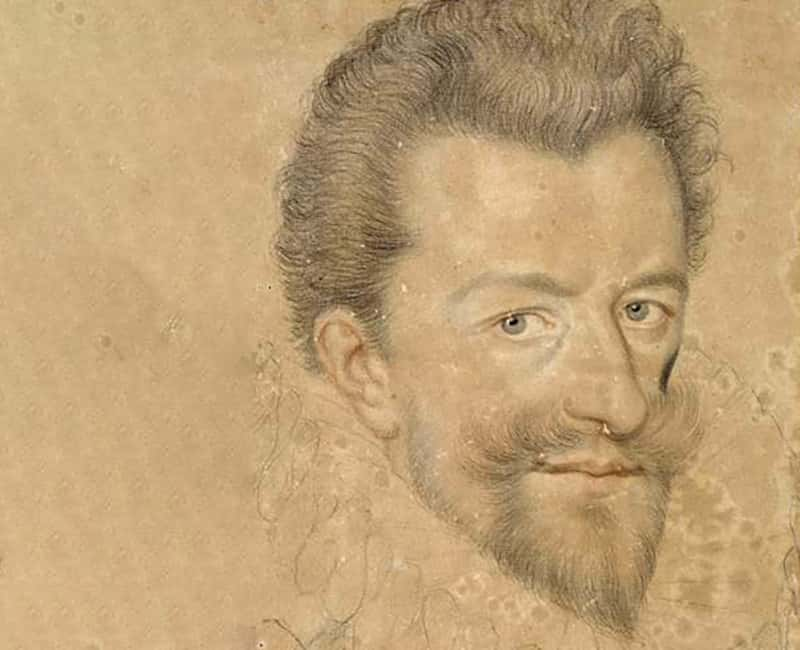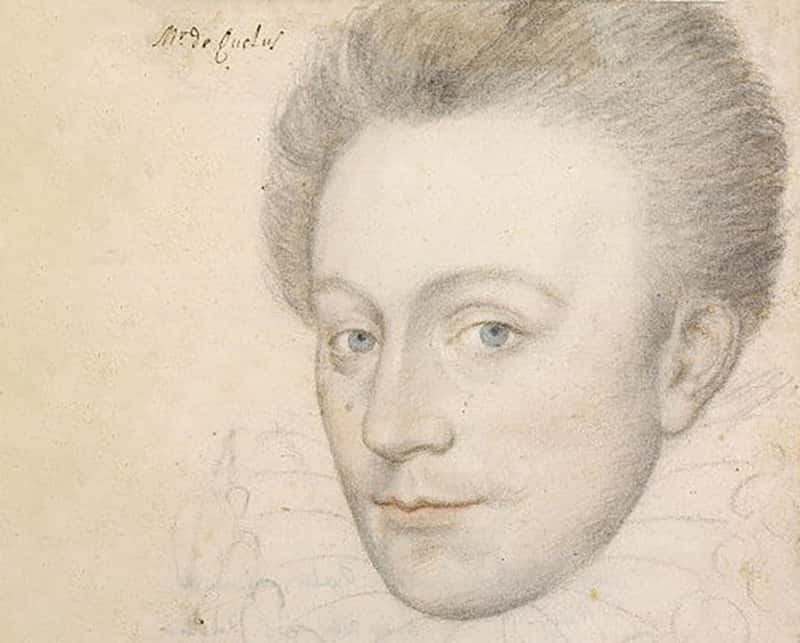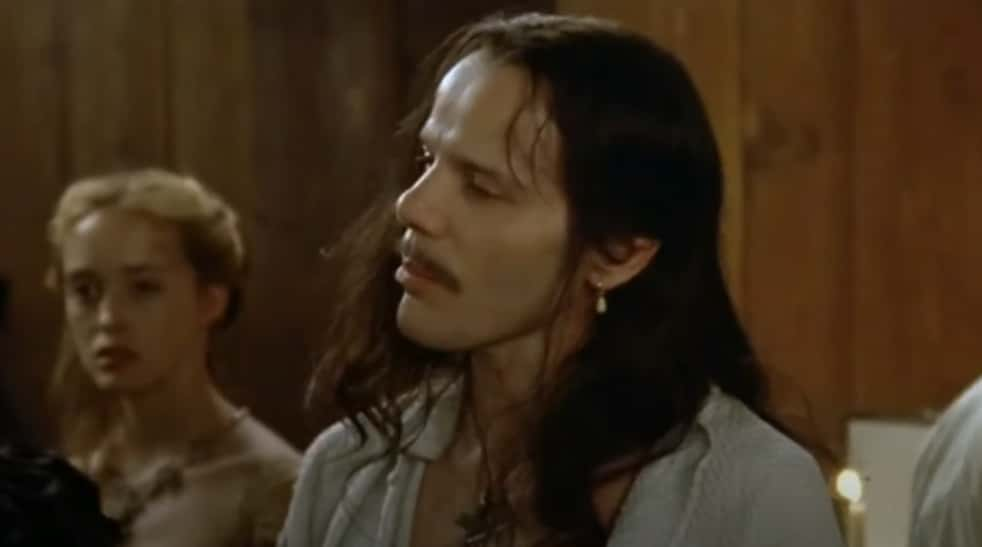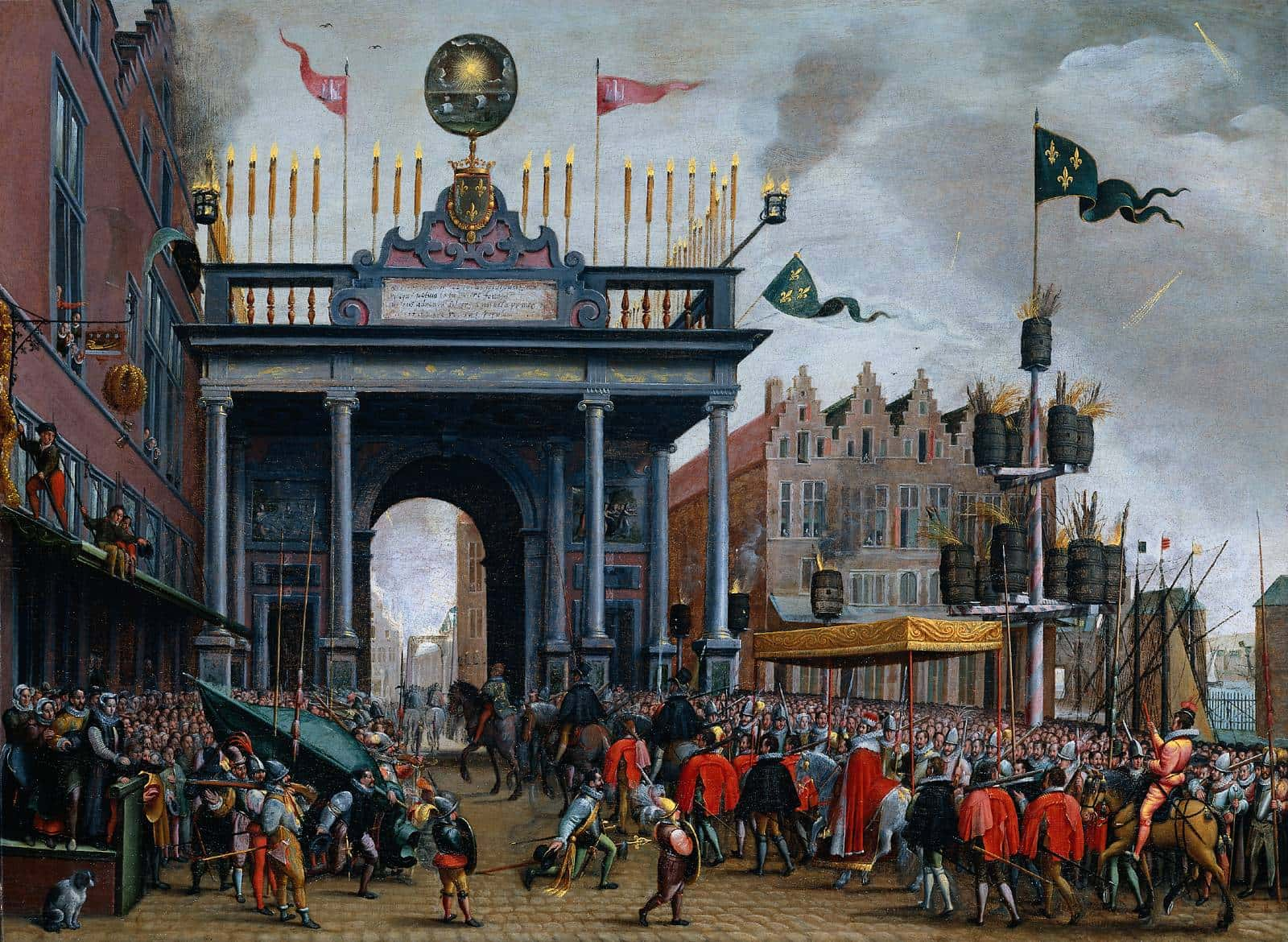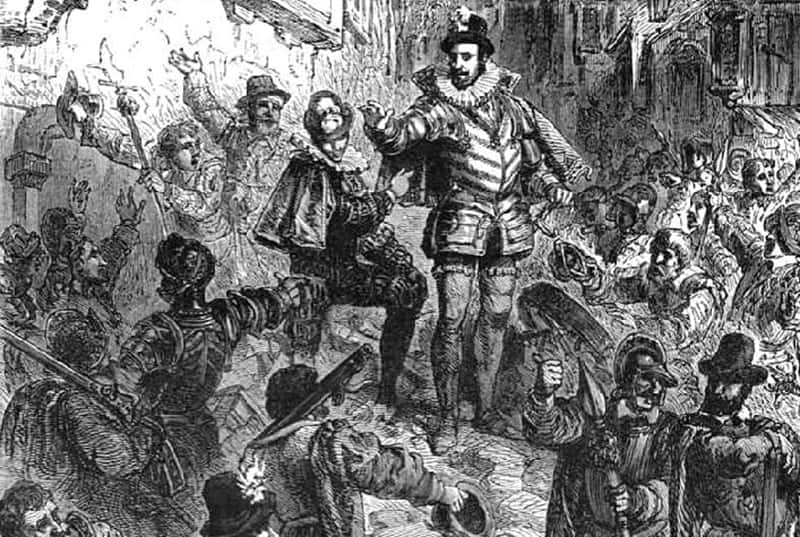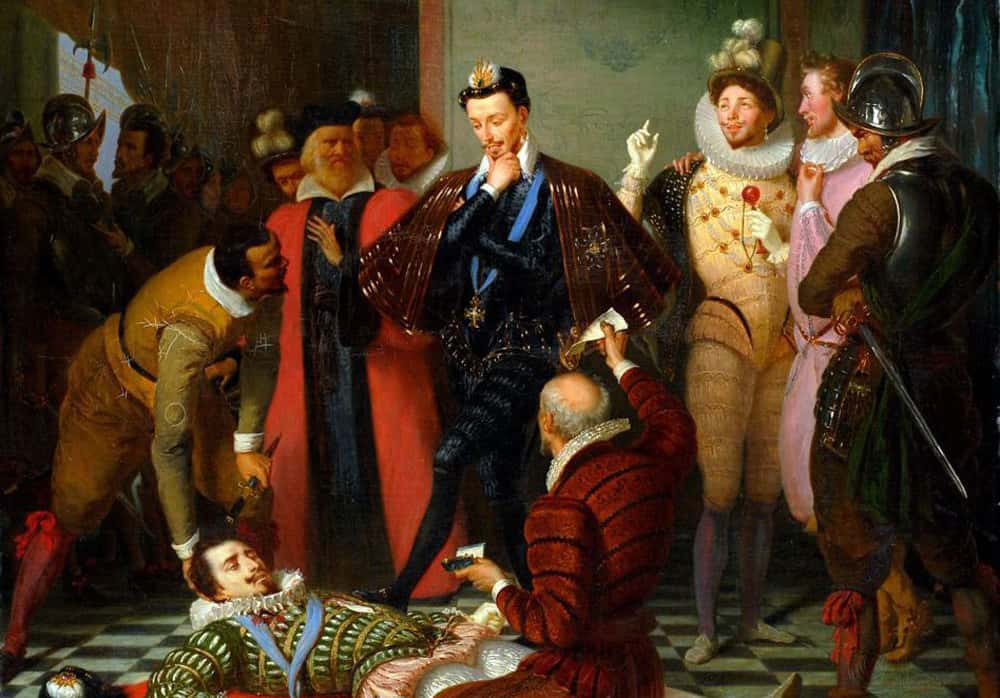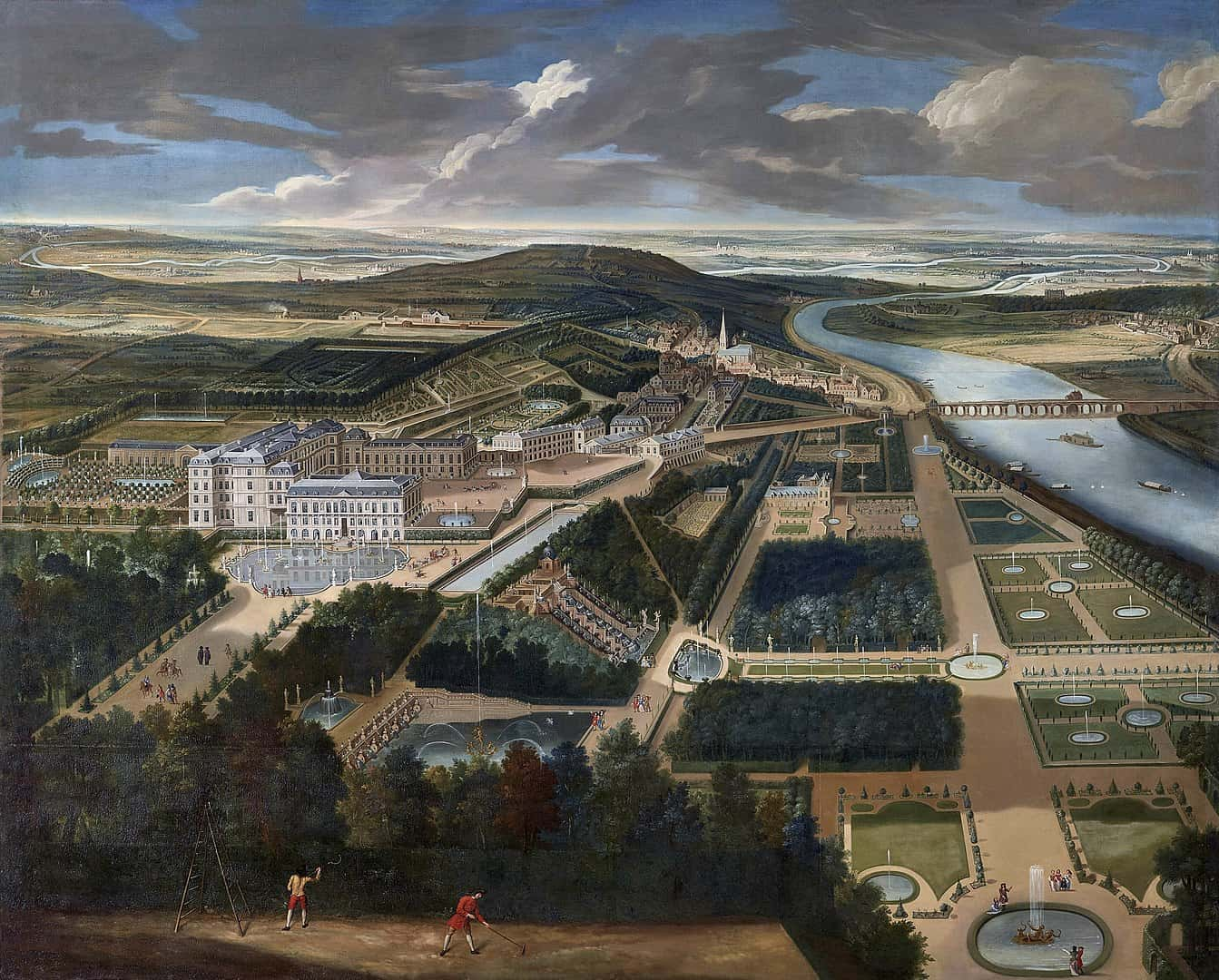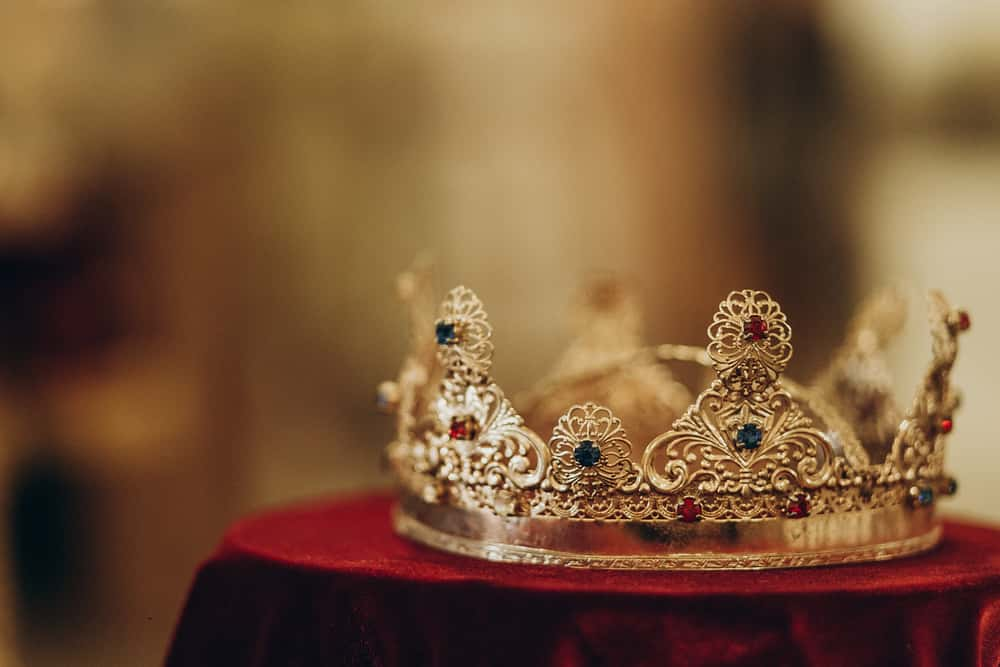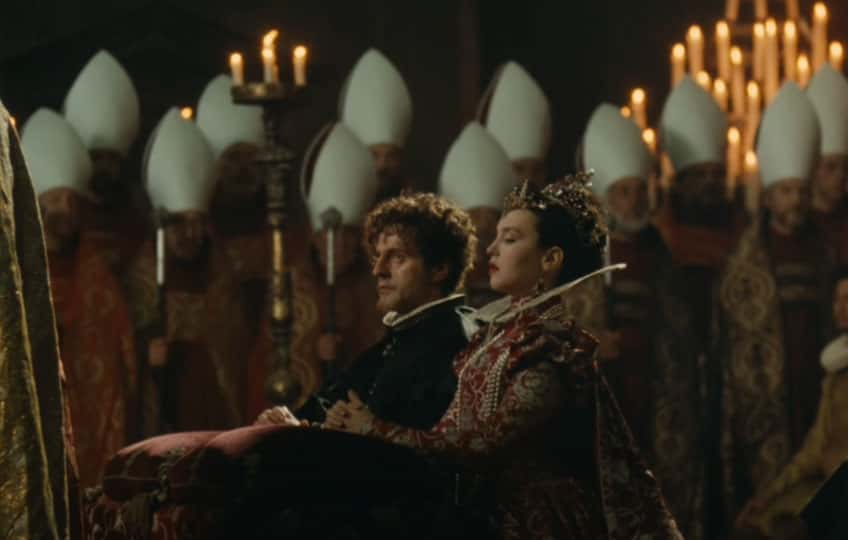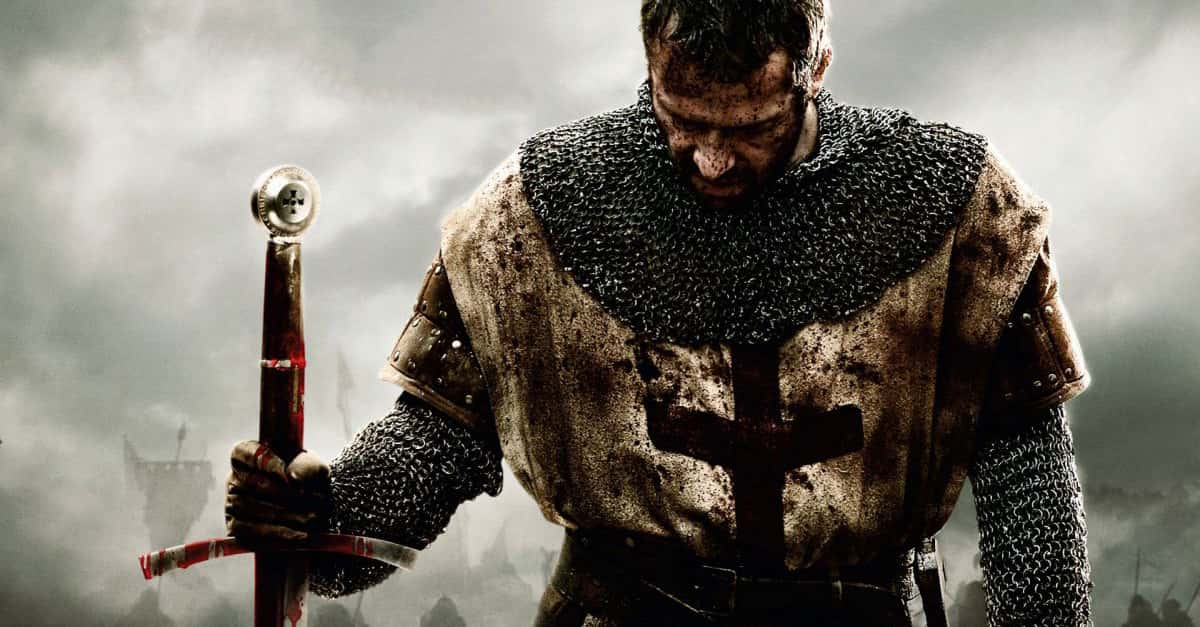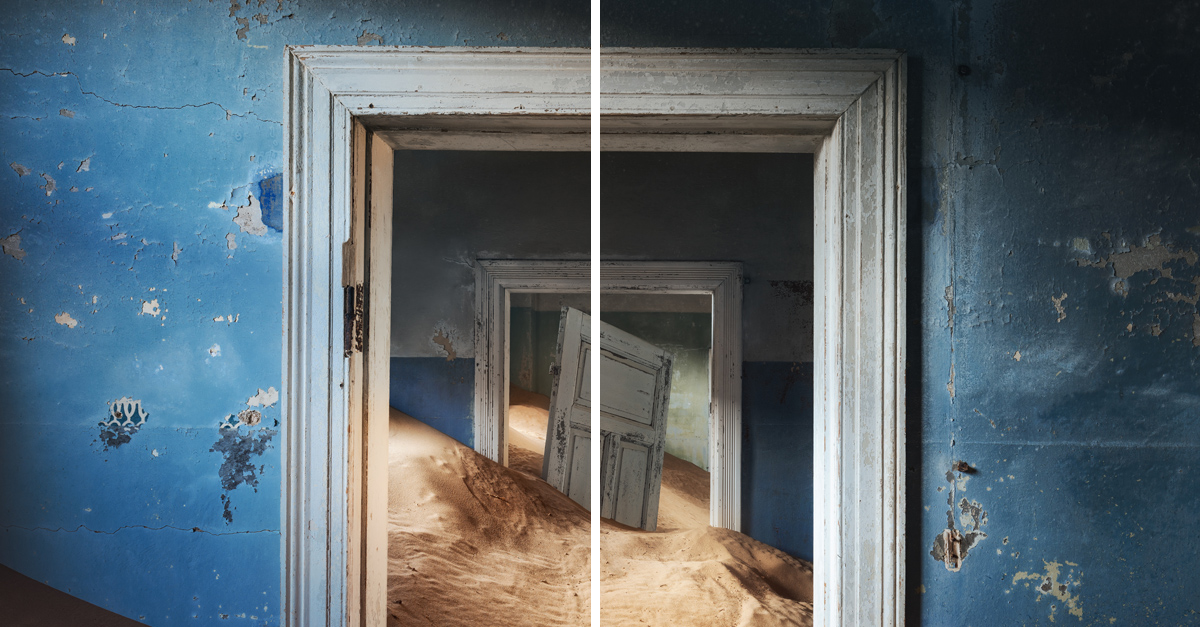King Henry III of France lived in an age of civil and religious unrest. While he tried to get a grip on the situation and keep France from imploding, his personal issues always seemed to get in the way. Along with the plotting, backstabbing, and drama in the French court, Henry found himself making the wrong decisions again and again. It led to one of the most dramatic, and tragic, rules in French history.
1. No One Thought He Would Rule
Born on September 19, 1551, little baby Henry was the fourth child of King Henry II and Catherine de’ Medici. As the spare to the spare to the spare to the heir, the young royal could expect to inherit a fancy title or two, but absolutely no one thought that he'd one day become king. But right from the start, it seemed like Henry relished a challenge.
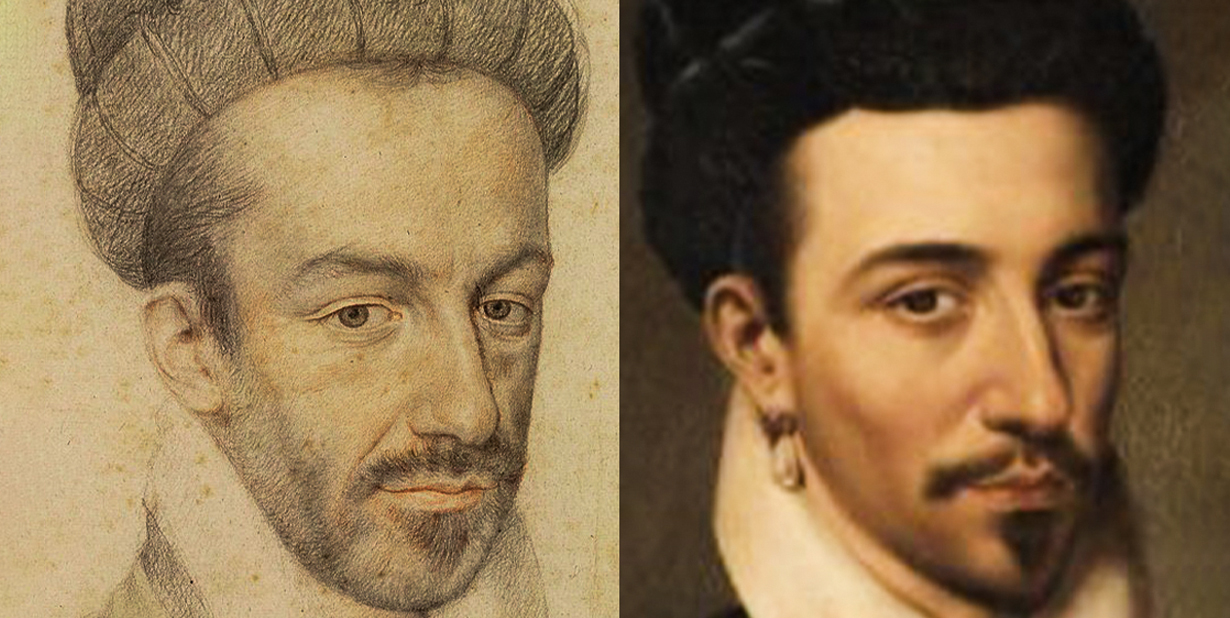
2. He Was Mommy’s Favorite
Despite being the fourth son, Henry was his mother's favorite child. The Queen called him “chers yeux,” meaning “precious eyes,” and Henry often followed his mom wherever she went. Since the King and the court were busy grooming Henry’s older brothers for the throne, Henry’s mom lavished a ton of love and attention on him. As we'll see, her affection was a double-edged sword.
 Reign (2013–2017), CBS Television Studios
Reign (2013–2017), CBS Television Studios
3. He Gained A Reputation
In 1555, a four-year-old Henry went to his mom’s nursery school at St. Germaine, where he soon gained a reputation as the best of the royal children. While his brothers were a bit like medieval jocks, Henry was a bookworm. He loved reading, arts, and soon enough, his handsome face and gallant manners led to his new status as a perfect young prince.
Unfortunately, his darker tendencies also started to surface.
4. He Became Rebellious
A roughly ten-year-old Henry incurred the wrath of his mom when members of his house influenced him into becoming a Protestant. He rebelled against his Catholic faith, refused to attend Mass, bit the nose off of a statue of Saint Paul, and ceaselessly harassed his younger sister, Margaret of Valois, into converting to Protestantism. He even threw her rosary and Book of Hours into a fire which, back in 1500s France, was one heck of a scandal.
5. He Was (Nearly) Perfect
After the “setting-his-sister’s-stuff-on-fire” incident and receiving a verbal lashing from his mom, Henry never showed any more tendencies towards Protestantism. Instead, he u-turned right back to Roman Catholicism. His religious zeal, along with his pomp and circumstance, numerous artistic talents, and generosity made him a favorite in court. Well, at least, it should’ve. Despite his repentance, Henry was far from perfect.
6. He Took After His Mom A Bit Too Much
Unfortunately, Henry's mother's strong influence over him inspired a lot of distrust in court. Like his mom, he had a heck of a poker face, and no one could ever really tell what he was really thinking. Also like his mom, he always spoke and acted carefully and cautiously, never promising too much or showing his true feelings. The distrust only became stronger when a series of tragedies hit the family.
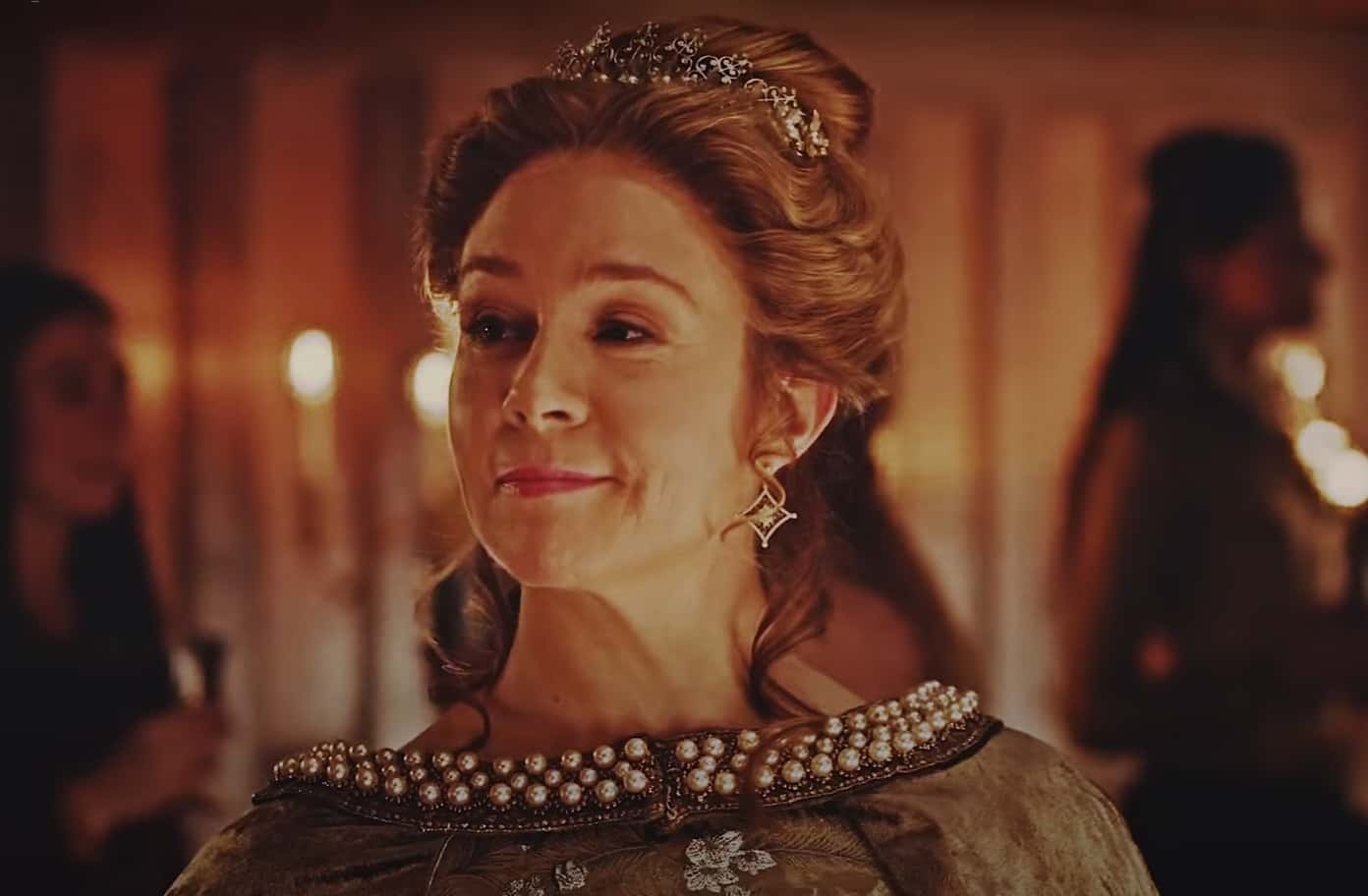 Reign (2013–2017), CBS Television Studios
Reign (2013–2017), CBS Television Studios
7. He Endured A Horrific Tragedy
Between 1559 to 1560, the royal family suffered through a series of devastating losses. First, young Henry's father, King Henry II, passed after contracting a horrific infection in a jousting match. Then, shortly after Henry's oldest brother became King, he perished of tuberculosis at just 16 years old. And the tragedy wasn't even over.
 Reign (2013–2017), CBS Television Studios
Reign (2013–2017), CBS Television Studios
8. He Suddenly Had A Shot At The Crown
After King Francis II passed, the crown should have gone to the family's next oldest son, Louis of Valois, but he didn’t live past childhood. Suddenly, Henry had a very real possibility of maybe becoming the King, if anything happened to his one remaining older brother, King Charles IX. And although Henry acted every bit the loyal brother on the surface, his actions said otherwise.
9. He Almost Ran Away
All the chaos in the royal family caused a political powder keg to explode. A territorial dispute ricocheted through France, leading Henry to hatch a daring plan. He'd run away from court and become the figurehead for the Ultra-Catholics. However, the plot came to light before Henry got the chance to do anything. But even so, the conspiracy didn’t win him any favors in court. If anything, it only got the rumor mill going at a fever pitch.
 Reign (2013–2017), CBS Television Studios
Reign (2013–2017), CBS Television Studios
10. He May Have Been Bi
Despite his talent for wooing the ladies, rumors began that Henry also liked to get down with the men in his court. Henry was also known for his flamboyant dress, including pearl earrings and red lipsticks. Whether or not this meant he was an equal-opportunity lover, at least some of the rumors probably originated from people who wanted to taint Henry's reputation.
Luckily for Henry's enemies, Henry wasn't doing himself any favors either. People bristled at his growing arrogance, and soon his ego spun out of control.
 Wikimedia Commons, Peter Salanki
Wikimedia Commons, Peter Salanki
11. He Became A Teenage General
In 1563, Henry's mother brought him along to a treaty negotiation with Louis, Prince of Condé. During these talks, young Henry, with some serious prodding from his mom, arrogantly threatened Louis into giving him control over the armies of France. Somehow, he succeeded. At just 16 years old, Henry now led France’s armies. This went about as well as you'd expect.
12. He Wasn’t Very Good At His Job
Henry took his men and went after Louis’s retreating forces. Despite his overwhelming advantage, Henry's age and inexperience ruined any chance of victory. He laid siege on his enemies, but Henry just couldn't force Louis to surrender. On March 2, 1568, his mom agreed to make peace, which forced Henry to shamefully withdraw from the battlefield. It was not a good look for a kid jockeying for the crown.
 Reign (2013–2017), CBS Television Studios
Reign (2013–2017), CBS Television Studios
13. He Shared His Leadership
While Henry was technically the head of France’s armies, he didn’t really have full command. Heeding the advice of his mom, he directed his armies under the guidance of his two lieutenants. With their help, Henry brutally suppressed the French Protestants, earning the love of the Ultra-Catholics. They repeated tales of Henry's bravery on the battlefield to anyone who'd listen. But not all Henry's expeditions went so smoothly...
14. He Protected The Innocent
In October of 1569, Henry fought in the Battle of Moncontour. Despite being thrown off his horse several times, Henry kept getting back up again and again. After the battle ended, Henry rode throughout the field, calming his men down from their bloodlust. He even drew his sword several times to protect defenseless victims against some of his rowdier men. Unfortunately, his brother did not celebrate Henry's victory.
15. His Brother Was Jealous Of Him
When King Charles heard about his little brother's victory, he was not happy. Charles wanted the same kind of glory and his jealousy drove him to betray his own brother. Charles rode up to Henry's men and promptly took control of the situation. Henry was ticked, and soon this little feud started to ensnare even more members of the royal family.
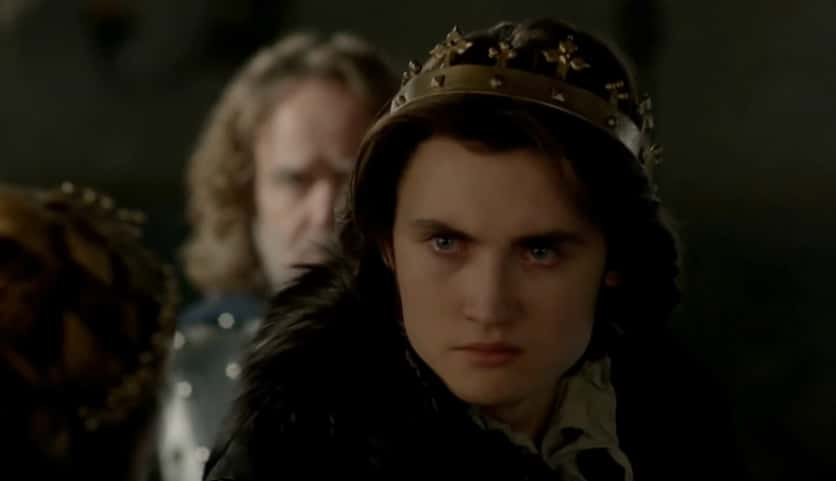 Reign (2013–2017), CBS Television Studios
Reign (2013–2017), CBS Television Studios
16. He Hated His Sister’s Relationship
For a long time, Henry had been unhappy with an aristocrat named the Duke de Guise. You see, Henry heard a rumor that de Guise was the one who sent his big brother Charles to the camp to undermine Henry’s authority. And as though that wasn't enough, Henry also thought that de Guise was seeing his sister Margaret on the sly. Henry began to hate de Guise and soon, he committed a horrific act.
17. He Plotted Against His Sister
Henry saw de Guise as his greatest rival in court, so like a good momma's boy, Henry told Queen Catherine all about his suspicions. He asserted that de Guise and Margaret were definitely having an affair, and that Margaret, in an act of betrayal, gave away Henry's personal secrets to de Guise. Disturbed by this news, his mom acted swiftly to ensure her favorite son’s success.
 Reign (2013–2017), CBS Television Studios
Reign (2013–2017), CBS Television Studios
18. He Had His Sister Punished
The Queen harshly admonished and beat Margaret, even though she protested her innocence. Then the Queen sent de Guise far away from court as well. In one swift move, Henry managed to dismiss a political rival and punish his sister’s supposed indiscretions. Henry had regained power, but it came at a terrible cost. For the rest of her life, Margaret hated her brother—and honestly, who can blame her?
19. He Turned Down Queen Elizabeth
In 1570, none other than the Queen of England, Elizabeth I herself, proposed marriage to Henry. Unfortunately, they had irreconcilable religious views, since Henry was Catholic and Elizabeth was Protestant. Henry was quite contemptuous toward the famous Queen too, once calling her an—ahem—"old creature". To be fair, Elizabeth probably only proposed marriage to make Spain mad, but still…wow.
20. He Plotted Against His Enemies
Getting mad about religion became the running theme of Henry’s life. In September of 1571, a dismayed Henry discovered that King Charles had welcomed a Protestant admiral named Gaspard de Coligny into his council. The staunchly Catholic Henry deeply believed that he had to get rid of de Coligny. With the help of his mom, Henry began to plot the Admiral’s downfall.
21. His Plot Failed
Henry had a lot to gain from getting rid of de Coligny and some historians even believe that Henry and his mother plotted to end the Admiral's life. Unfortunately for Henry, his rumored plan failed in disastrous fashion. With de Coligny still alive and outraged about the attempt on his life, France entered into some of its darkest days.
22. He Lied To Save His Skin
Angry Protestants stormed the Louvre in response to the brazen attempt on the Admiral's life. They threatened both Henry and his mother, who both swore they were innocent. Later, when they escaped the vengeful mobs, Henry and Catherine told King Charles about how they were treated. Charles felt outraged that anyone would threaten members of the royal family. Seeing his chance, Henry started to lead his brother down a destructive path.
23. He Manipulated His Brother
The Queen and Prince Henry sat down King Charles and told him that the French Protestants undermined his authority and power. Unfortunately, that meant one thing and one thing only: The King couldn't allow them to live. In a fit of passion, Charles ordered the elimination of key leaders. With that, Henry began planning out the details of the grim deed.
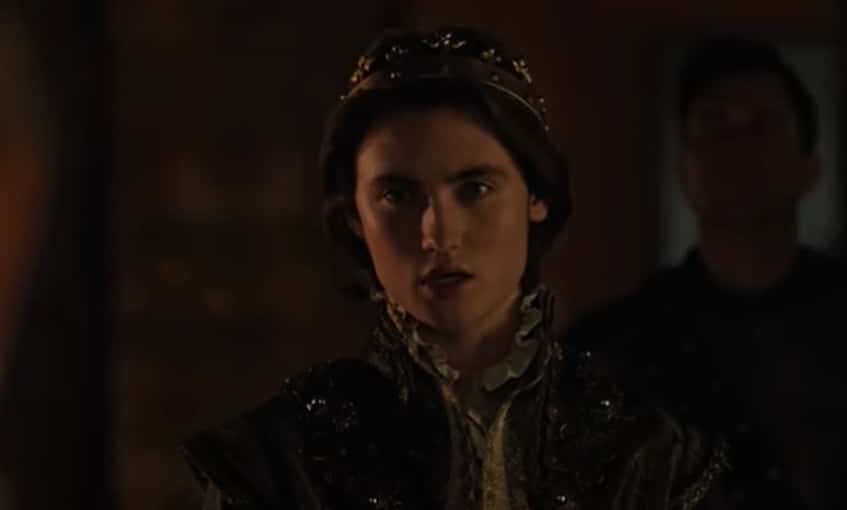 Reign (2013–2017), CBS Television Studios
Reign (2013–2017), CBS Television Studios
24. It Spiralled Out Of Control
The royals armed their men and shut the city gates to prevent the Protestants from fighting back. On August 24, 1572, hired mercenaries took down key leaders throughout Paris, slaughtering them in the streets. This triggered a horrific wave of brutality throughout the city, where ordinary Catholics, now armed, began slaying any Protestants they could get their hands on. This became known as the notorious St. Bartholomew Day tragedy. And Henry only fanned the flames harder.
25. He Encouraged The Slaughters
Catholics in twelve other cities followed Paris's lead and viciously took down any Protestant they could find. Some believed that the King himself ordered the slaughter, though others, argue that Henry sent out the orders under his brother's name. Henry clearly loved wielding power and unfortunately, despite his bloodthirsty streak, he was about to take the throne.
 Henri 4 (2010), Ziegler Film & Company
Henri 4 (2010), Ziegler Film & Company
26. Poland Handed Him Their Throne
Henry’s first taste of kingship came from an unexpected place. On May 16, 1573, Polish nobles elected Henry to take their throne, in exchange for France's support against Russia. The news came as a shock to Henry—Poland was virtually unknown to France. Still, a throne was a throne, so Henry agreed to become the king of a foreign nation. Needless to say, he was in for a bit of a surprise.
27. He Balked At Their Laws
On September 10, the Polish delegation arrived in the French court and asked Henry to swear an oath to "respect traditional Polish liberties and the law on religious freedom". As you might imagine, the “religious freedom” thing didn’t sit well with Henry, so he put off any articles about religious tolerance. This wasn’t the only issue the new Polish king faced either.
28. Being The King Was A Drag
While being the King of any country sounded like a sweet deal, Henry soon found out that his "stroke of luck" was too good to be true. Polish monarchs, as it turned out, functioned under the system of "Golden Liberty," which ensured all nobles, irrespective of their rank, had the same rights and privileges under the law. In other words, Henry simply couldn’t just run around doing whatever he wanted. It looked like Henry was going to lose his cool—only for everything to change in an instant.
29. He Caused A Crisis
On May 30, 1574, King Charles IX of France lost an ongoing battle with tuberculosis. Henry heard the news in mid-June of the same year, immediately said “au revoir!” to Poland, and raced back to France for the crown he actually wanted. While his leaving caused an itty-bitty little constitutional crisis in Poland, Henry didn’t see it as his problem, and he ignored their pleas for him to come back. After all, he had so much more waiting for him in France.
30. He Fulfilled A Lifelong Goal
With the crown practically in his grasp, Henry did something he had always wanted to do: Woo Marie de Clèves, and make her his wife. Marie’s beauty had caught his eye as a young lad, and he was madly in love with her. He spent much of his time back home writing declarations of love to her, and even promised her his loyalty and “the diadem of France". There was just one small problem: Marie was already married.
31. He Neglected His Duties
In love with a married lady? Not a problem if you're the king! Henry immediately began plans for Marie’s divorce proceedings, pursuing them with so much gusto that his mom—who didn’t really think Marie made for the ideal match—backed off and let Henry do his thing. His drive for her consumed so much of his time that his mom took over much of his kingly duties, such as, y’know, actually ruling the country. His pursuit of Marie didn’t go on for long, however.
32. It Ended In Tragedy
Tragically, a sudden illness cut their love story short. Shortly after having a child, Marie lost her battle with a sudden illness. Upon hearing the news from his mom, Henry was beside himself with grief. He shut himself into his rooms, refusing to see anyone and refusing to eat for three days. For years after, Henry couldn’t bear to hear the name of his beloved spoken out loud. Still, a future King needed a wife, and the reasons he had for choosing Marie’s replacement were nothing short of eerie.
33. He Found Marie 2.0
For the next several months, his mom gently prodded her son to find a wife, both to cement a strong alliance and to bring him out of his depression. In a chilling turn of events, Henry indeed chose a different bride: Princess Louise de Lorraine, who bore a striking resemblance to Marie, who had recently met her demise. Despite his mom’s misgivings, Henry went through with the wedding, and made Louise his queen.
34. He Started His Reign In Style
Henry was officially coronated on February 13, 1575. He immediately began currying favor with key supporters of his reign, travelling through the country to pay them his respect and giving gifts of gold. He publicly forgave some of his perceived greatest enemies, including his sister, Margaret. Unfortunately, just a year later, more family problems reared their ugly heads.
35. His Brother Betrayed Him
Even before Henry’s official coronation, trouble brewed in the form of Henry’s youngest brother, Francis, duc d’Alençon. Francis had the support of the hated Protestants, and eventually fled the French court to join them on September 13, 1575. In the spring of 1576, the Protestants, with Francis’s support, sieged Paris. In the face of overwhelming odds, Henry had no choice but to surrender to Francis’s demands, and those demands were a doozy.
36. He Paid His Dues
Francis successfully forced Henry to sign the Edict of Beaulieu. The mandate allowed Protestants broad religious freedoms, including representation in the government, and even financial redress for families impacted by the St. Bartholomew Day tragedy. Needless to say, Henry’s capitulations did not make him popular in court, and it made the religious instability of his reign even worse.
37. His Enemies Struck Back
Henry’s long-time enemy, Henry I de Guise, was a staunch Roman Catholic who couldn't believe that Henry had bowed to the demands of the Protestants. In response, he formed the Catholic League, fearing that the King’s actions could end Catholicism for good. With the power of the Catholic League, de Guise strong-armed Henry into rescinding most of the newly-granted freedoms in the Edict of Beaulieu. In other words, Henry's reign was off to a disastrous start.
38. His Court Was Chaotic
Things only got worse after Henry left the court for 14 days. Upon his return, various feuds had gotten completely out of hand. Any time Henry made even the slightest indication that he preferred one member of the court, another member would immediately challenge them to a duel. This chaos eventually led to the demise of his court favorite, a man named Quélus.
But even when Henry lost his friend, the court had no mercy.
39. The Court Mocked Him
Henry openly wept and grieved over the loss of Quélus. Far from being empathetic, the image of the weepy king amused members of his court, who saw him as weak and frankly, a bit overdramatic. Pamphlets mocking his weakness circulated, and the fact that Henry put up a white marble mausoleum in honor of Quélus really didn’t help matters. After Henry finished mourning Quélus, it was time for revenge.
40. He Made The Wrong People His Enemies
Henry went after the man that had slain Quélus, but unfortunately, he was now under the protection of Henry's old enemy, de Guise. Stymied and grieving, Henry did what he always did when he couldn’t openly attack a member of the court: he went after their wives and daughters. Unsurprisingly, this didn’t win him any allies amongst the ladies.
And as Henry lost his allies within France, his brother was busy losing him allies outside too.
41. His Brother Made Things Worse
In 1579, rebels invited Francis to the Netherlands to become its new ruler. This greatly angered Spain, who had been trying to solidify their control in the Netherlands for years. Add in the fact that Spain supported the Catholic League, and Henry was stuck in the middle of a horrible decision: Lose Spain or take away his own brother's chance at a throne.
However, a tragic event meant that Henry didn’t have to hesitate for long.
42. He Surprised Everyone
Unfortunately for the French royal family, Francis’s little excursion into the Netherlands ended in utter failure. Then things got even worse. The prince fell ill due to malaria, leading the Queen to bring him back home to perish in Paris. Henry and Francis reconciled upon his return, with Henry even fondly calling Francis a “little macaque” before embracing him. Unfortunately, the brothers didn't have much time together.
Francis passed in 1584—and his demise kick-started a series of brutal events.
43. He Cracked Under Pressure
You see, Henry didn't have children, which meant that Francis was supposed to inherit his throne. Upon his passing, that title went to Henry III of Navarre, a distant cousin. The only problem was that Navarre was a Protestant, and the court was currently in the hands of the Catholic League. Under pressure from both de Guise and the Catholic League, Henry cracked and annulled Navarre’s claim to the throne.
Navarre, however, was not about to have the French throne ripped away from him. With that, the conflict between the three Henrys began.
 Henri 4 (2010), Ziegler Film & Company
Henri 4 (2010), Ziegler Film & Company
44. He Made Uneasy Bedfellows
At first, Henry III of France and Henry I de Guise were allies, if uneasy ones. Henry III of Navarre was a Protestant, after all, so the two Catholics joined forces. They went into battle against Navarre, with Henry doing most of the heavy lifting by preventing Navarre’s allies from joining against him. When Henry and de Guise returned to Paris, he expected praise and glory. Instead, all he got was contempt.
 Henri 4 (2010), Ziegler Film & Company
Henri 4 (2010), Ziegler Film & Company
45. They Spread Lies About Him
Upon his return, the populace shocked Henry with their disapproval. As it turned out, the Catholic League had spread propaganda that Henry paid Navarre’s allies to pretend to invade, in order to falsely gain glory. De Guise, the Catholic League claimed, did all the work. Henry lost even more love from his people, while de Guise gained more and more popularity. When de Guise inevitably turned against him, Henry barely had anyone on his side.
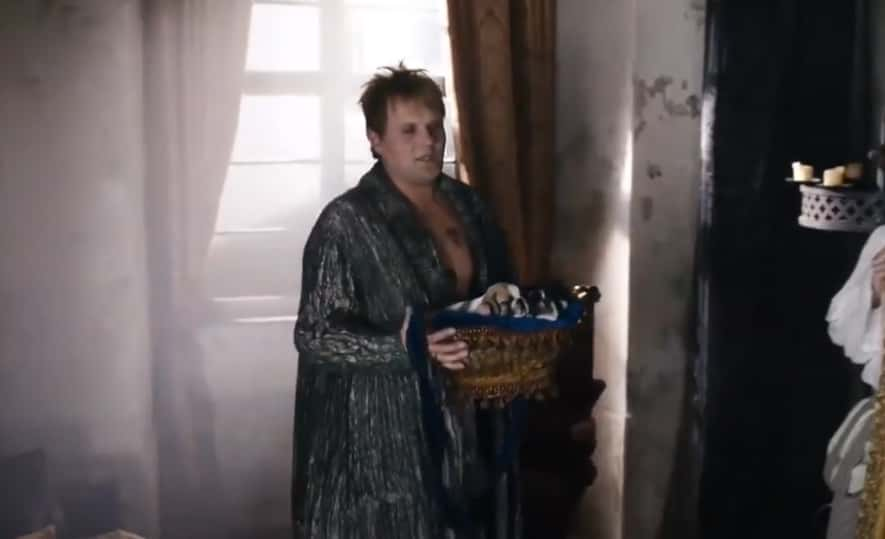 Henri 4 (2010), Ziegler Film & Company
Henri 4 (2010), Ziegler Film & Company
46. His People Forced Him To Flee
Henry’s uneasy situation with de Guise turned into open hostilities on May 12, 1588, in an event known as the Day of the Barricades. Henry banned de Guise from coming into Paris, but de Guise openly defied his orders. The Parisians, with some subtle nudging from key supporters of de Guise, welcomed de Guise into Paris, putting up barricades to protect him from Henry’s wrath. Fearing for his safety, King Henry hit his lowest point: He was forced to flee from his own city.
Just a few months later, Henry got a chance to defeat his long-time nemesis, once and for all.
47. He Struck Back
A couple months after Henry fled Paris, the English defeated the infamous Spanish Armada. Recognizing that Spain probably couldn’t keep supporting the Catholic League in this state, Henry struck. On December 23, 1588, Henry invited de Guise and de Guise’s brother to a château. The moment they arrived, Henry had them slain. This became one of the biggest mistakes of his reign.
48. His Act Of Revenge Turned Against Him
De Guise’s popularity caused the citizens to turn against Henry. The Parliament, in accordance with the citizenry, charged Henry for slaying de Guise and his brother. In a twist of fate, this forced Henry to join forces with his old enemy Navarre so he could get enough resources to take back Paris. On August 1, 1589, Henry stayed at Saint-Cloud with his army to prepare for their attack on Paris. The attack never came to be.
49. Treachery Ended His Life
While staying at Saint-Cloud, Henry met a friar named Jacques Clément, who claimed to have important documents to deliver to the King. Henry told his guards to stand back so that he could chat with Clément without being overheard. Clément approached to murmur something to Henry, and as he did, he brandished a blade and thrust it into Henry's abdomen. The guards slay Clément on the spot, but for Henry, it was too little, too late.
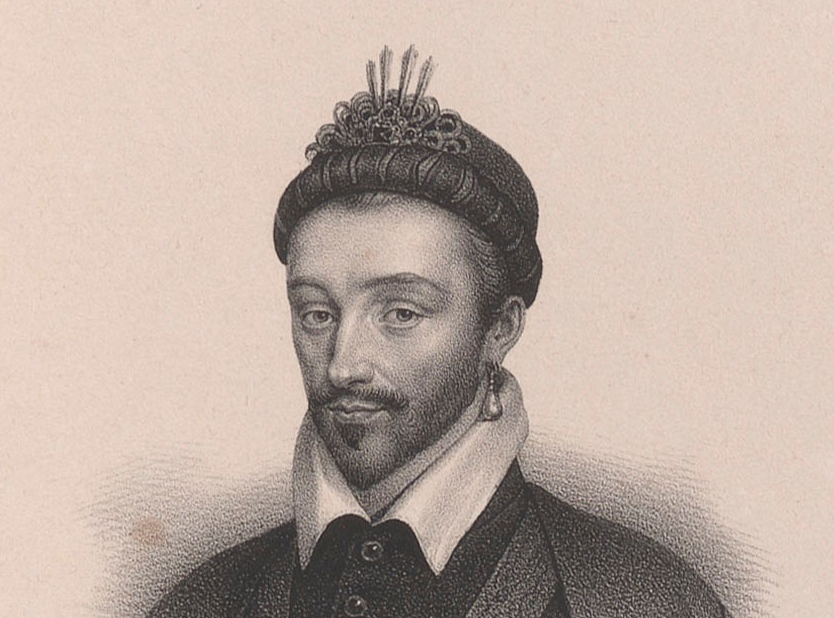 François-Séraphin Delpech, Wikimedia Commons
François-Séraphin Delpech, Wikimedia Commons
50. His Passing Was Celebrated
At first, Henry’s wounds didn’t seem too bad, but he took no chances. He gathered his guards, telling them that Navarre was their king, should Henry not survive. Tragically, Henry did not survive past the morning of August 2, 1589. His passing was met with cheers and celebration from the people of Paris. Sadly, the people did not remember King Henry III of France for being a good and glorious king.
51. Dark Rumors Swirled
Long after Henry's demise, there are still some chilling rumors about this King. The most disturbing of all goes back to the fact that when he and his sister Margaret were children, they would sleep in the same bed. In the years to come, Henry's possessive need to control Margaret's love life made members of the court raise their eyebrows. Over time, rumors began to spread that Henry and his sister Margaret may have been in a romantic relationship. And somehow, that's not even the worst part.
52. His Family Was So Messed Up
According to some historical sources, people didn't just think that Margaret slept with Henry III. They also believed that this was a family affair. Allegedly, she also slept with her other brother, Charles IX. If it wasn't so creepy, it'd be really on-brand for a Medici.
Sources: 1, 2, 3, 4, 5, 6, 7, 8, 9, 10, 11, 12, 13, 14, 15, 16, 17

